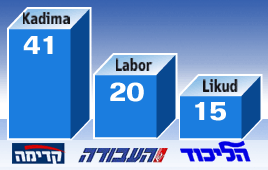Well - the debate continues in respect of those Muhammed cartoons.
Newspaper editors from around the world are deciding whether to print the cartoons or not. In most European countries they have been printed. The UK press have not. In Australia apart from the Queensland
Courier Mail they have not. The Australian daily
The Age in its daily editorial in deciding not to print the cartoons editorialised that"The antidote to extremism is dialogue and understanding between communities - whether their values are liberal secular or devoutly religious. The Age's handling of this issue reflects a long commitment to good intercommunal relationships, which is the bedrock of Victoria's multicultural success story. This is one of the great challenges created by globalisation, which must necessarily be met at community level. Media and individuals of goodwill can have no illusions about its importance".
Outside Europe many papers have printed the cartoon. Most recently, the
Jerusalem Post decided to publish the cartoons writing in its editorial that "If anyone wants to appreciate why the west views with such suspicion the weapons programmes of Muslim states such as Iran, they need look no further than the intolerance Muslim regimes exhibit to these cartoons, and what this portends. No one wants to add fuel to the fire. Mobs are more easily placated than reasoned with. But once this controversy passes it will be valuable to determine just who exploited the flap to foment anti-Western outrage, and to inquire what 'moderate' Muslim voices said".
The reaction of the Muslim world continues to be utterly unreasonable. According to a report in the
Guardian Iran's best-selling newspaper announced it would retaliate by running images satirising the Holocaust. The Iranian government announced that it would impose a formal trade ban on Danish imports. In Syria protesters , set fire to the Danish and Norwegian embassies. In Lebanon protestors attempted to set fire to the Danish embassy. And it goes on and on.
What has annoyed me, however, is that despite what seems a fairly straight forward situation, a number of commentators have sought to argue in support of this outrageous reaction. Richard Itani writing in
Counterpunch tries to argue that since it is prohibited in some European countries to deny the Holocaust it is hypocritical for the West to make a case for freedom of the press in the case of the Danish cartoons. This criticism is completely off the mark. To begin with, only a few countries have such laws (which I do not agree with) and their is an obvious distinction between the two. The one is criticising a religion, which in western tradition is utterly and completely acceptable; the other in the guise of antisemitism is making false historical claims about perhaps the worst atrocity in European history. Christianity and Judaism for hundreds of years have been thoroughly critiqued often in the most nasty and aggressive manners. This is part of living in a robust, liberal society - Islam had better get used to it.
In another weak explanation for the Muslim reaction Sukhivinder Stubbs writes in
The Guardian that "Muslim grievances are not merely spiritual but, more pressingly, material. The rage expressed by demonstrators in Gaza against Scandinavian aid workers was, at a deeper level, the rage of the disenfranchised, the displaced. In the UK and across Europe, Muslims are socially and economically disadvantaged, among those at the bottom of the pile. Cultural gestures such as the Danish cartoons may please well-to-do secular liberals in helping push back the envelope of free speech and cock a snook at religious dogma. To Muslims, however, they merely add to a sense of disaffection, of themselves as a pariah people. Another insult to add to their social injury". I'm sorry - a small cartoon in a small Danish newspaper, however, offensive does not excuse the outrageous response throughout the Islamic world. No matter what there "spiritual" or "material" grievance maybe, come on - this is not adequate explanation for the response.
Robert Fisk often writes in criticising the West that we need to ask the "why" question. Why did terrorists blow up the twin towers on September 11? Why is there so much hatred against the US in the Arab world? I agree with him. However, if answering this question simply means to accept Western guilt and not address whether the Islamic world is also responsbile then you are not exactly answering the "why" question. In this case, the responsiblity clears falls on the side of the Islamic community. Oppression and disaffection are not adequate explanations.
Stuck in this mess is the voice of the moderate Muslim perhaps expressed best by Tabish Khair in
The Guardian "Between the Danish government and Islamist politicians, between Jyllands-Posten and the mobs in Beirut, between Laban and Khader, the moderate Muslim has again been effectively silenced. She has been forced to take this side or that; forced to stay home and let others crusade for a cause dear to her - freedom - and a cultural heritage essential to her: Islam. On TV she sees the bearded mobs rampage and the clean-shaven white men preach. In the clash of civilisations that is being rigorously manufactured, she is in between. And she can feel it getting tighter. She can feel the squeeze. But, of course, she cannot shout. She cannot scream. Come to think of it, can she really express herself at all now?"

